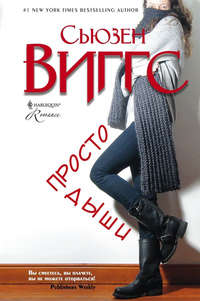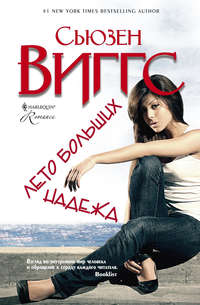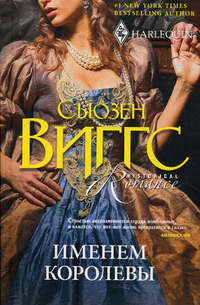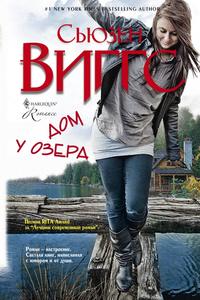
Полная версия
The Winter Lodge
“Show you what?”
“You don’t always get to pick who you fall in love with. Sometimes love picks you.”
“Why do I get the sense that you’re trying to tell me something?”
“I’m not,” Olivia said, tossing her the pink baby dolls. “Not yet, anyway.”
By the end of the day, Jenny had discovered a new level of fatigue. Until now, she had taken the concept of “home” for granted, as most people did. The simple knowledge that your home—your favorite chair, your stereo, your bed, the stack of books on your nightstand—was waiting at the end of the day was a true source of comfort, something she hadn’t thought about until it was gone. Now weariness dragged at her, and she thought wistfully of her own home, her own bed. The moment she stepped inside Rourke’s house with her shopping bags, the fatigue hit her like a giant wave.
“You look like you’re ready to drop,” he said. The dogs came galloping in from their run in the yard, shaking snow from their fur, tails waving in greeting. Clarence, the one-eyed cat, followed, slipping into the fray.
“Good guess,” she said.
He fed the animals, talking to them as though they were people, which Jenny found unexpectedly charming. “Move aside, boys,” he instructed. “And don’t gulp your food. You’ll get the hiccups.”
Despite her fatigue, she caught herself smiling as the dogs lined themselves up, watching with adoring eyes while he fixed their dinner. Why hadn’t she ever adopted a pet? That unconditional love was incredibly nice to come home to.
“How about you?” Rourke asked her. “What do you want for dinner?”
Oh, boy. “Anything. At this point, I’m not picky.”
“Good, because I’m not much of a cook.”
“You want some help?” she offered.
“Nope. I want you to take a good long shower, because you’re going straight to bed afterward.”
She thought about his cushy bed and felt a wave of yearning as she headed into the bathroom. The shower, like everything else in his house, was meticulously clean yet oddly generic. She resisted the temptation to snoop in his medicine cabinet. There was, she knew for a fact, such a thing as learning too much information about a person. Besides, the more she learned about Rourke, the deeper his mystery seemed.
After her shower, she put on the soft yoga pants and hoodie she’d bought earlier, combed her hair and went to the kitchen, where Rourke was putting dinner on the table.
“So this is the ‘serve’ part of ‘to protect and serve,’“ she commented.
“I take my mission very seriously, even if it’s just canned soup and ham on rye. Made with the best rye bread in the known world,” he added.
“You have excellent taste in bread,” she said, recognizing a loaf of Sky River Bakery’s traditional Polish rye. “Did you know the starter for this bread is more than seventy years old?”
He looked blank. Most people did when asked to consider bread starter.
“It’s a live culture. You use a bit to make the dough, and cultivate more so it never runs out. My grandmother got it from her mother when she was a new bride in Poland. A traditional wedding gift is the pine box the size of a shoebox for the pottery container. Gram brought the culture in its carved pine box to America in 1945, and she kept it alive all her life.”
Rourke slowed down his chewing. “No kidding.”
“Like I would make this up?”
“So some part of my sandwich dates back to Poland before World War II.” He frowned. “Wait a minute. You didn’t lose it in the fire, did you?”
“No. We keep all the bread cultures at the bakery.”
“Good. That’s something, at least. So if you ever lose it or run out or whatever, can you make a new starter?”
“Sure. But it’ll never be exactly the same. Like wine from different vintage years, the aging process adds character. And it’s tradition for a mother to pass it on to her daughter in a chain that’s never broken.” She picked at her sandwich. “Although I guess my own mother took care of that.”
“The stuff’s safe and sound at the bakery,” he said, clearly shying away from the topic of her mother. “That’s what matters.”
“What, a rye bread starter matters more than my mother?”
“That’s not what I said. I didn’t mean to bring up a sore subject.”
“Believe me, she’s not a sore subject, not after all this time. I have bigger worries at the moment.”
“You do,” he agreed. “And I’m sorry if I said anything to upset you.”
How careful he was being with her, Jenny observed. “Listen, I’m going to be okay,” she said.
“I never said you weren’t.”
“That look says otherwise. The way you’ve been treating me says otherwise.”
“What look? What way I’ve been treating you?”
“You’re watching me like I’m a bomb about to go off. And you’re treating me with too much care.”
“I can honestly say that’s the first time a woman has ever accused me of being too caring. So I’m supposed to … what? Apologize?”
She wondered if she should bring up the pact of silence that had governed them for so long. At some point, they were going to have to discuss it. Not now, though. Right now, she was too tired to get into it. “Just cut it out,” she said. “It feels strange.”
“Fine. I won’t be nice anymore. Help me with the dishes.” He got up from the table. “Better yet, you do the dishes and I’ll see what’s on ESPN.”
“Not funny, McKnight,” she said.
They ended up loading the dishwasher together. She noticed a small, framed photograph on the windowsill over the sink. It was one of the few personal items in the house, and she wasn’t in the least surprised to discover it was a picture of Joey Santini, Rourke’s boyhood best friend—and also the man to whom Jenny had been engaged. The shot showed Joey, a soldier in the 75th Ranger Regiment, serving in the Komar Province of Afghanistan.
Against a desolate airstrip with a Chinook cargo helicopter in the background, he looked completely happy, because that was Joey—happy to be alive, no matter what. In his sand-colored BDUs, his elbow propped on a jeep, he was laughing into the camera, in love with the world, with life itself, even in the midst of the scorched earth of battle.
“I have that same picture,” Jenny said. “Or, had. It was in the fire.”
“I’ll make you a copy.”
It was on the tip of her tongue to ask him if he ever thought of Joey, but she didn’t have to ask. She knew the answer: Every day.
“I have dessert,” Rourke said, shutting the dishwasher and cranking the dial. Apparently, he considered the subject closed.
“I’m not eating a Ho Ho.”
“Ice-cream cones,” he said.
“The perfect winter dessert.”
He fixed her three fist-size scoops, ignoring her when she protested the size. Then they sat down on the sofa, and both dived for the remote control. He beat her to it, and even though she whined, he refused to watch Project Runway, insisting instead on a classic rerun of American Chopper. Tucking the remote between his hip and a sofa cushion, he said, “Now you can’t accuse me of being too nice.”
She licked her ice cream and watched the careful, intricate assembly of something called—in tones of reverence—a master cylinder. Her eyes started to glaze over.
“Can’t we compromise?” she asked. “Maybe watch one of those crime investigation shows?”
“You mean the ones that make police work look noble and sexy?”
“What, it’s not noble and sexy?” she asked.
“Honestly, it’s detail work. I spent half the day inventorying cruisers, which was completely depressing, since the budget doesn’t allow for equipment upgrades for another two years. Either the city administrator is an idiot, or he’s Scrooge.”
“Matthew Alger, you mean.”
He nodded.
“Then why do police work if it’s all boring details?” she asked.
“Because it’s my job,” he said simply, staring at the TV screen.
“But why is it your job? You could have picked anything you wanted, gone anywhere. Instead, you picked this little mountain town where nothing ever happens.”
A commercial came on, and he turned to face her. “Maybe I’m waiting for something to happen,” he said.
She was dying to ask him to elaborate but didn’t want to seem too interested. “And here I thought being a cop was one adventure after another.”
“Hate to burst your bubble, but it’s not noble and sexy. Now, making buttermilk pie and raspberry kolaches—that’s sexy.”
“Well, then, I hate to burst your bubble, but I don’t do the baking.”
“So? You’re still sexy.”
In spite of herself, Jenny grew flushed. It was stupid, at her age, getting flustered over something some guy said. Especially a guy like Rourke McKnight. She tried to pretend she wasn’t affected, even though she felt a sting of heat in her cheeks. Good lord, were they flirting? This was getting complicated but … irresistible. “Now, what part of protect and serve is that?” she asked, trying for a light tone.
“It’s got nothing to do with the job. And you’re blushing.”
“I’m not.”
“Sure you are. I like it. I like that I can make you blush.”
And with such pathetic ease, she thought. They had a rhythm still. They always had. She’d spent years trying to forget but it all came back. “I’ll keep that in mind. You’re really easy to please, Chief McKnight.”
“I always have been,” he said. “You of all people should know that.”
Pine Box Traditions
It’s a Polish wedding tradition to give a new bride a supply of starter for sourdough rye bread. I suspect it’s a combination of tradition and desperation on the part of the bride. It just doesn’t seem fair to add the pressure of making a good bread right out of the gate to everything else the poor girl is juggling.
My grandmother told me that the day before her wedding, when she was just a scared girl of eighteen, her mother gave her a carved pine box, just like the one that had sat on a shelf above the kitchen stove all her life. It’s kind of nice, really, thinking of that chain of women, spanning the decades and centuries.
Now, the reality of today’s world is that new brides don’t give a hoot about making bread. However, if the breadmaking mood strikes you, here’s a recipe with a starter that only takes one night to set up. The process begins somewhat mysteriously. Flour, buttermilk and onion meld together in the beginnings of a hearty bread.
Polish Sourdough Rye Bread
2 (.25-ounce) packages active dry yeast
1 teaspoon white sugar
2 cups water
1 thick slice onion
4 cups rye flour
1 cup buttermilk, room temperature
1 teaspoon baking soda
1 tablespoon salt
8 cups bread flour
1 tablespoon caraway seeds (optional)
The night before making the bread, in a medium-size mixing bowl, dissolve one packet of yeast and the sugar in the water. Let stand until creamy, about 10 minutes. Stir in rye flour until mixture is smooth. Slip onion slice in. Cover and let stand overnight then remove onion.
The next day, dissolve remaining package of yeast in buttermilk. Add rye flour mixture, baking soda, salt, 4 cups of the bread flour and stir to combine. Add the remaining 4 cups of bread flour, 1/2 cup at a time, stirring well after each addition (you may not need to add all the flour). When dough has become a smooth and coherent mass, turn it out onto a lightly floured surface and knead until smooth and supple, about 8 minutes. Sprinkle caraway seeds on dough and knead them in until evenly distributed throughout.
Lightly oil a large mixing bowl. Place dough in the bowl and turn to coat with the oil. Cover with damp cloth and let rise in a warm place for about 1 hour or until volume has doubled. Preheat oven to 350°F.
Turn dough onto a lightly floured surface and divide into three pieces. Form each piece into a loaf and place in 3 lightly greased 9 x 5-inch bread pans. Cover and let rise until nearly doubled, about 1 hour.
Bake at 350°F for about 35 minutes or until the loaves sound hollow when tapped.
Six

Summer 1988
Rourke McKnight tried not to act too excited about going to summer camp. He was afraid that if he showed even the smallest amount of pleasurable anticipation, his father would forbid him to go. During the limo ride down Avenue of the Americas to Grand Central Station, Rourke sat quietly, watching the traffic through tinted, bulletproof windows. It was raining, the hard, summer kind of rain that caused geysers of steam to rise from the asphalt.
His best friend, Joey Santini, was riding in the front seat with Joey’s dad. Mr. Santini had been the McKnight family driver since the beginning of time, as far as Rourke knew. It was just a total stroke of luck that Joey was Rourke’s age and that father and son—there was no
Mrs. Santini, not anymore—lived in the service quarters of the McKnights’ building. This was a good thing, since otherwise Rourke would have grown up with no one to play with except Mrs. Grummond’s Dandie Dinmont terriers. Although the sliding glass privacy window was shut, Rourke could see Joey and Mr. Santini laughing and talking the whole way, in contrast to the quiet, tense occupants of the luxurious back of the limo.
Even though he was twelve years old, Rourke had never been to camp before. His father was against it, of course, and when his father said no, that was that. Period. End of story.
But everything changed when two things happened the same week—the Bellamy family made a big contribution to the senator’s campaign, and Drayton McKnight was given a rare appointment to a committee that was going on a lengthy junket to the Far East to discuss trade agreements that would benefit his district.
Now it made perfect sense to send Rourke away for the summer, to the Bellamys’ Camp Kioga in the Catskills wilderness. When Rourke’s mother was young, she had gone to Camp Kioga, and she thought Rourke should, too.
Rourke had to act all bummed out that he’d be away from his parents all summer. He had to pretend he was just as worried about his own well-being as his father was. He even had to pretend that he wasn’t excited about the fact that Joey would be going to camp, too, so the boys could look out for each other. Rourke knew for a fact that this camp cost an arm and a leg, which his family could easily afford. Not Joey’s, though. He was going to camp on scholarship, which meant Rourke’s father was secretly picking up the tab.
Not out of the goodness of his heart, though. Rourke’s father was completely paranoid. That was what Rourke figured, anyway. The guy was freaked. He was sending Joey to camp so Rourke wouldn’t be alone among strangers. In a way, worrying about attacks on his family probably made the senator feel important. And that was what Drayton McKnight was all about—feeling important.
That, and being perfect. No, thought Rourke. Looking perfect. Looking like you had the perfect family and the perfect life. “Make me proud” was the phrase Rourke heard most often from his father. It was a sort of code. By now, Rourke had figured that out. It meant he had to win at every sport he played. Get straight A’s in school. Learn to use his looks and confident smile to win people over so they would vote for his father each election year.
All that stuff, it was so easy. He was big and strong and had no problem conquering any sport he tackled. And getting good grades? All you really had to do was listen to what the teacher said and figure out what he wanted you to say back to him. Rourke was a politician’s son. He knew how to do that.
He couldn’t wait to get to Camp Kioga, where nobody cared what his grades were. He pinched the inside of his lip between his teeth to keep from smiling.
“Your hair is too long,” his father said suddenly. “Julia, why didn’t he get a haircut before we let him run wild all summer?”
Rourke didn’t move. This was a crucial moment. On a whim, his father might decide they needed to head right back uptown, to the ancient barbershop where electric clippers were used to buzz white sidewalls around the ears of hapless boys.
He kept staring out the window. Raindrops raced backward across the glass, the silver tracks like streams of mercury. He spotted two of them that were neck and neck, and picked one as the winner, tensing as it pulled ahead and then fell back. Finally, the raindrop merged with the others and he lost track.
“He did have a haircut,” Rourke’s mother said. She was using her soothing, reassuring voice. The one she used when she didn’t want Rourke’s dad to get upset. “It’s the same cut he always gets.”
“He looks like a girl,” the senator remarked. He leaned forward, closer to Rourke. “You want to spend the summer looking like a girl?”
“No, sir.” Rourke kept staring at the rain-smeared window. He held his breath, praying his dad wouldn’t order the driver to turn uptown.
“It’s fine, really,” Rourke’s mother said.
Way to tell him, Mom, Rourke thought cynically. Way to stand up to the bastard.
“Mildred Van Deusen told me all three of her boys will be on the same train,” his mother continued. “Rourke, you ought to see if you can find them. Maybe you can sit with them.”
Bingo, Rourke thought, watching his father’s interest shift. Rourke had to hand it to his mom. She might not be any good at standing up to his dad, but she sure as heck knew about diversionary tactics. The Van Deusens were one of the richest, most important families in the district, and anytime Rourke’s dad saw a chance to connect with them, he jumped on it.
“I’ll be sure to look for them,” Rourke said.
“You do that, son,” his dad said, apparently forgetting about the haircut.
“Yes, sir.”
And then, thank God, they arrived at Grand Central. There was a mad shuffle as they got his backpack and duffel bag out of the trunk and made sure he had his ticket and travel documents. The honking of taxi horns and whistles and shouts of porters filled the air. The marble archway opened to a salon that swarmed with travelers and panhandlers, vendors and performers. Mr. Santini came around with an umbrella, sheltering the three McKnights from the rain. Joey didn’t bother trying to fit under the umbrella; he yanked up the hood of his windbreaker, leaped across a puddle and was the first to reach the awning of the station.
Rourke walked between his parents through the entryway. After parking the car, Mr. Santini slipped away to join Joey. The McKnights stopped below the big lighted display board, where they verified the track number and the fact that the train was on time. Some of the people they passed gave them admiring looks. This happened a lot when Rourke was out with his parents. Together, the three of them looked like the all-American family—blond and healthy, well-dressed, prosperous. Sometimes Rourke even sensed envy from people, as if they wanted what the McKnights had.
If only they knew.
Rourke sidled away from his parents. He and Joey exchanged a glance. Sheer delight danced in Joey’s eyes. Some of the girls in their soccer league said Joey looked like one of the New Kids on the Block. Rourke didn’t know about that, but Joey’s grin was infectious. Camp, Rourke exulted, and he knew Joey understood his silent glee. We’re going away to camp.
Rourke wondered if Joey understood how big this was, and how much he owed Joey himself. If not for Joey, Rourke wouldn’t be going anywhere. When the subject of Camp Kioga first came up, the senator had immediately dismissed the idea. It had been Joey who had—in that casual way of his—named off all the kids from school who were going to summer camp. He’d pretended he was talking to Rourke, but he was careful to mention all the most important families, the kind of people Rourke’s father admired and whose support he cultivated. Rourke had convinced his parents that it was a good idea to send Joey, too, and that had tipped the decision in his favor.
When they reached the track, Rourke said his goodbyes. He and the senator shook hands, his father’s grip crushing hard for a few seconds, as if to leave some sort of imprint. “Never forget who you are,” his father advised. “Make this family proud.”
Rourke looked him in the eye. “Yes, sir.”
Then his father’s attention wandered as he scanned the platform. Here he was, saying goodbye to his kid for ten whole weeks, and he was working the room, looking for constituents.
At least it gave Rourke’s mother a few extra seconds for her own goodbyes. She held him close. He was a little bit taller than her now, so it was easy for her to whisper in his ear while hugging him.
“You are going to have an amazing time,” she said. “Camp Kioga is just … magical.”
“Julia.” The senator’s voice cut through the moment. “We have to go.”
She gave Rourke one final squeeze. “Don’t forget to write.”
“I won’t.”
He stood on the platform and watched them walk away, slender and fashionable in their raincoats. His mother tucked her hand into the crook of her husband’s arm. Rourke blurred his eyes, and his parents melted together so they weren’t two separate people anymore, but one single being. Senator and Mrs. McKnight.
All around him, he could hear kids and parents saying goodbye. Some of the girls and mothers were shedding real tears, professing that they’d miss each other horribly and write every day. Mr. Santini, a big bear of a man, yanked Joey in for a hug, kissing the top of the boy’s head with a loud smack. “I’m gonna miss you like icecream sundaes, sonny-boy,” said Mr. Santini, unabashedly crying.
Rourke wondered what it would be like to have the kind of family you’d actually miss when you left them.
Camp Kioga was as magical as Rourke’s mother had promised. He and Joey shared quarters with ten other guys in a long wooden bunkhouse called Ticonderoga Cabin. Every single day was packed with activities—sports and crafts, nature hikes, rock climbing, sailing and canoeing on Willow Lake, stories around the campfire at night. They had to sing and dance some nights, which
Rourke could definitely do without, but since everyone had to participate, there was no getting around it.
One thing Rourke was good at was putting up with something he didn’t feel like doing. And he sure as hell had endured worse than leading some giggling, sweaty-handed girl around the dance floor, muttering quick-quick, slooow, quick-quick, slooow under his breath in time to the music.
At camp, he met several Bellamys. Mr. and Mrs. Charles Bellamy, the owners and directors, seemed kind enough. “Your father’s wilderness-conservation bill means the world to us. Thanks to that bit of legislation, we don’t have to worry about industry closing in on us,” Mrs. Bellamy had said on opening day. “You must be quite proud of him.”
“Yes, ma’am.” Rourke didn’t know what else to say. Yes, he’s a good public servant but a complete bastard in private—that would go over like a fart in church.
“We’re very glad you’re here,” Mrs. Bellamy went on.
“I remember your mother. Julia—Delaney, wasn’t that her maiden name?”
“Yes, ma’am.”
“She was a favorite. So full of fun. She used to play practical jokes all the time, and on talent night, she did a stand-up-comic routine that had us all in stitches.”
Rourke didn’t believe her, but then, one rainy day when outdoor activities were canceled and Joey was gone on a solo expedition, she showed him some of the camp’s treasured photo albums housed in the library. The collection was in the main pavilion, a gigantic timber building from the 1930s. It was the heart of Camp Kioga, housing the dining hall, library, infirmary, the kitchen and camp offices.
And sure enough, there were several snapshots of his mom in the 1970s, hamming it up. She wore a smile Rourke had never seen before. She looked so completely happy that he almost didn’t recognize her.









